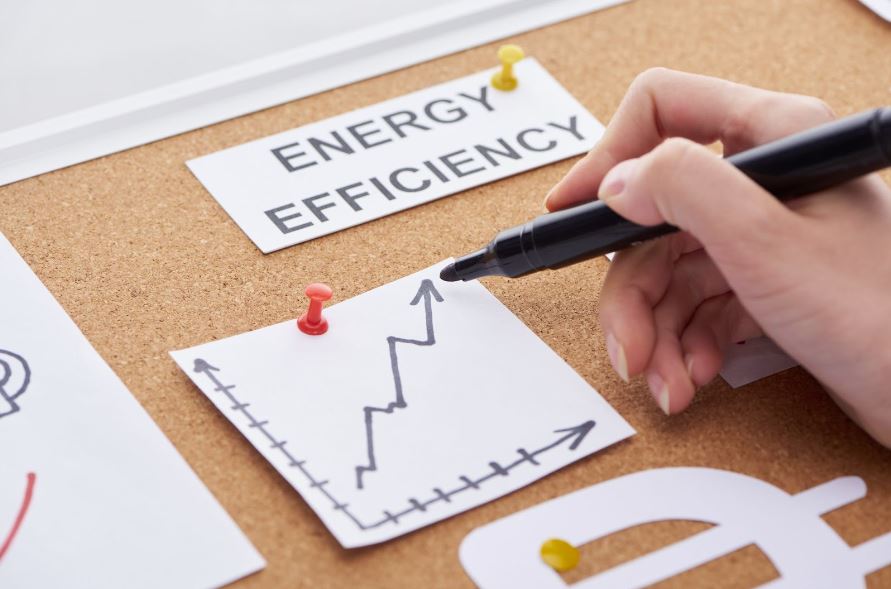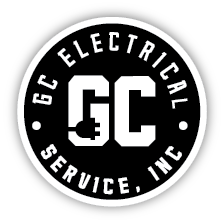Controlling costs is paramount to maintaining profitability and staying ahead of the competition in a business environment. One area where businesses can significantly reduce expenses is by lowering electricity rates through energy efficiency measures. Energy audits play a crucial role in this process, offering businesses a comprehensive understanding of their energy consumption patterns and identifying opportunities for savings. This blog explores the importance of energy audits, their impact on reducing electricity rates, and how businesses can implement audit recommendations to achieve significant cost savings.
What Is an Energy Audit?
An energy audit systematically analyzes how energy is used within a building or facility. The primary objective is to identify areas where energy consumption can be reduced without compromising comfort or productivity. Energy audits thoroughly examine energy bills, equipment, building envelope, and operational practices. The process can be broken down into three levels:
Level 1: Walk-Through Assessment
A Level 1 energy audit, also known as a walk-through assessment, is a preliminary inspection of a facility designed to identify obvious areas of energy waste and potential improvements. During this audit, the auditor briefly tours the building, examining lighting, HVAC systems, and other equipment to spot immediate inefficiencies. The goal is to provide a quick overview of possible energy-saving measures that can be implemented with minimal investment.
Level 2: Detailed Energy Survey
A Level 2 energy audit, or detailed energy survey, involves a more comprehensive analysis of a facility's energy usage. This intermediate audit includes detailed data collection and energy modeling to pinpoint specific energy-saving measures. The auditor evaluates various systems and processes within the building, analyzes energy consumption patterns, and identifies inefficiencies. The result is a prioritized list of actionable recommendations, estimated costs, and potential savings for each measure.
Level 3: Investment-Grade Audit
A Level 3 energy, investment-grade audit provides an in-depth financial analysis of energy-saving opportunities. This advanced audit includes comprehensive data collection, detailed savings calculations, cost estimates, and return on investment projections. The audit aims to present a thorough business case for energy efficiency investments, enabling decision-makers to allocate resources confidently to the most cost-effective energy-saving measures.
The Importance of Energy Audits
Energy audits are essential for businesses aiming to reduce electricity costs for several reasons:
Identifying Inefficiencies
Energy audits help businesses identify inefficiencies in their energy consumption. These audits can uncover outdated or malfunctioning equipment, poor insulation, and energy-wasting operational practices. Businesses can reduce energy waste and lower their electricity bills by addressing these inefficiencies.
Enhancing Energy Management
An energy audit provides valuable insights into a business's energy consumption patterns. This information is crucial for developing effective energy management strategies. Businesses can set realistic energy-saving goals, monitor progress, and make informed investment decisions.
Increasing Awareness and Accountability
Conducting an energy audit increases awareness of energy consumption among employees and management. It fosters a culture of energy conservation and accountability, encouraging everyone in the organization to adopt energy-saving practices.
Supporting Sustainability Goals
Reducing energy consumption aligns with broader sustainability goals. By implementing energy-saving measures identified in an audit, businesses can reduce their carbon footprint, contributing to environmental protection and enhancing their corporate social responsibility profile.
How Energy Audits Help Reduce Business Electricity Rates
Energy audits play a pivotal role in reducing business electricity rates by identifying opportunities for energy savings and recommending cost-effective solutions. Here are some ways energy audits contribute to lower electricity rates:

Identifying Cost-Effective Upgrades
Energy audits identify cost-effective upgrades that can lead to significant energy savings. These audits may include upgrading to energy-efficient lighting, installing programmable thermostats, or replacing outdated HVAC systems. These upgrades can reduce energy consumption and lower electricity rates.
Optimizing Operational Practices
An energy audit can reveal inefficiencies in operational practices, such as leaving lights on in unoccupied areas or running equipment at full capacity when not needed. Businesses can reduce energy waste and lower their electricity bills by optimizing these practices.
Improving Building Envelope
Energy audits often identify areas where improvements to the building envelope can reduce energy consumption. Improving the building envelope can significantly reduce heating and cooling costs, lowering electricity rates.
Utilizing Renewable Energy Sources
Energy audits can also identify opportunities to integrate renewable energy sources, such as solar panels or wind turbines. By generating their own electricity, businesses can reduce their reliance on the grid and lower their electricity rates.
Negotiating Better Rates
When armed with data from an energy audit, businesses are in a better position to negotiate more favorable electricity rates with their utility providers. Demonstrating a commitment to energy efficiency can make businesses more attractive to providers, potentially leading to lower rates.
Implementing Energy Audit Recommendations
While identifying energy-saving opportunities is crucial, implementing the recommendations from an energy audit is equally important. Here are steps businesses can take to ensure successful implementation:
Develop a Plan of Action
After completing an energy audit, businesses should develop a detailed action plan outlining the recommended energy-saving measures, associated costs, expected savings, and implementation timeline. This plan serves as a roadmap for achieving energy efficiency goals.
Prioritize Projects
Not all energy-saving measures need to be implemented simultaneously. Businesses should prioritize projects based on cost, potential savings, and ease of implementation. Starting with low-cost, high-impact measures can deliver quick wins and build momentum for more extensive projects.
Secure Funding
Implementing energy-saving measures requires upfront investment. Businesses should explore various funding options, such as energy efficiency grants, low-interest loans, and utility rebates. Many utility companies offer incentives for implementing energy-efficient upgrades, which can help offset costs.
Engage Stakeholders
Successful implementation of energy audit recommendations requires the support of all stakeholders, including employees, management, and external partners. Businesses should communicate the benefits of energy-saving measures and involve stakeholders in the implementation process.
Monitor Progress
Regular monitoring and evaluation are essential to ensure the effectiveness of energy-saving measures. Businesses should track energy consumption, compare it to baseline data, and adjust strategies. This ongoing process helps maintain energy savings and ensures continuous improvement.
Review and Update
Energy management is an ongoing process. Businesses should periodically review and update their energy audit findings and action plans to account for changes in operations, technology advancements, and new opportunities for savings. Regular updates ensure that businesses optimize their energy use and reduce electricity rates.
The Future of Energy Audits
Energy audits' role in reducing business electricity rates is expected to grow as businesses increasingly focus on sustainability and cost control. Advances in technology, such as smart meters, energy management systems, and data analytics, will enhance the effectiveness of energy audits and make it easier for businesses to identify and implement energy-saving measures.
Smart Meters and Energy Management Systems
Smart meters provide real-time data on energy consumption, allowing businesses to monitor usage patterns and identify inefficiencies more accurately. Energy management systems can analyze this data and provide actionable insights, making it easier to implement energy-saving measures and track progress.
Data Analytics
Data analytics can enhance the effectiveness of energy audits by providing deeper insights into energy consumption patterns and identifying opportunities for savings. Advanced analytics tools can predict energy usage, identify trends, and recommend targeted interventions to optimize energy use.
Integration With IoT
The Internet of Things (IoT) offers new opportunities for energy management. IoT devices can monitor and control energy-consuming equipment, providing real-time data and enabling automated adjustments to optimize energy use. Integration with IoT can make energy audits more comprehensive and effective.
Artificial Intelligence
Artificial intelligence (AI) can further enhance energy audits by analyzing vast amounts of data and identifying patterns that may not be apparent through traditional methods. AI can recommend energy-saving measures, predict the impact of interventions, and continuously optimize energy use.

Maximizing Energy Efficiency With Energy Audits
Energy audits are critical in reducing business electricity rates by identifying inefficiencies, recommending cost-effective upgrades, and optimizing operational practices. By implementing the recommendations from energy audits, businesses can achieve significant cost savings, enhance their sustainability profile, and improve overall profitability. As technology advances, the effectiveness of energy audits will only increase, providing businesses with even more tools to manage their energy consumption and reduce costs. Embracing energy audits as part of a comprehensive energy management strategy is essential for businesses looking to stay competitive in today's market.
Visit our GC Electrical Service Inc. blog for insights on how energy audits can benefit your business. Learn from industry experts and stay updated on the latest energy management strategies.


